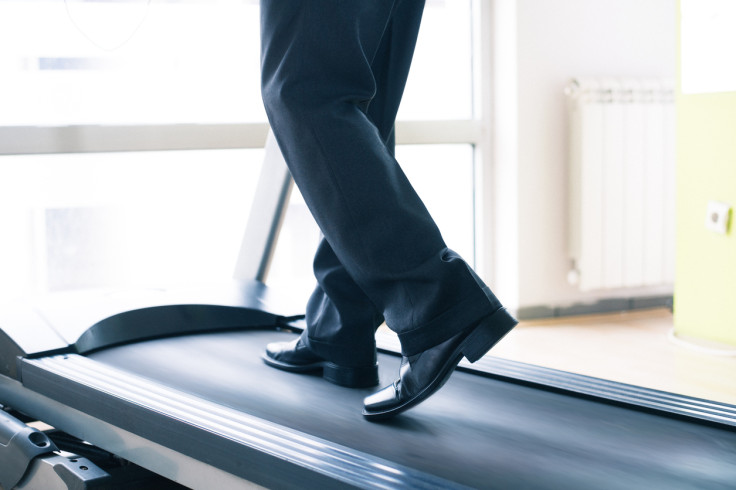Get up: Standing up instead of sitting helps you lose weight
Something to think about next time there are no seats on the tube.

Working an office job has its advantages (free tea) and its inconveniencies (sitting all day and barely getting to move at all).
A study published today (31 January) in the European Journal of Preventive Cardiology shows that spending a little bit more time standing up could prevent weight gain.
The study shows that by standing for six hours a day, people would burn 54kcal more than they would by sitting. It translates to a loss of about 2.5kg in a year and 10kg in four years.
Standing is also linked to lower risks of cardiovascular diseases like heart attacks and strokes.
While exercising and sticking to a healthy diet are the safest way to get rid of excess flab, finding the time and motivation to go to the gym can be tricky for some people. In Europe, the everyday desk worker spends an average of three to six hours per day sitting down. In the US, the average ranges between three to seven hours.
A research team from the Mayo Clinic in Rochester, US, scanned the results of 46 studies looking into the different amounts of energy people expended sitting and standing. They worked out a mean average based on the results from all participants.
Participants were on average aged around 33 years old and weighing about 65kg with a body mass index (BMI) of 24 kg/m2. Sixty percent of the total number of participants were men.
They found that people burned around 0.15 kcal per minute spent standing instead of sitting. According to lead author Professor Lopez-Jimenez, people are likely to burn even more calories. The participants were asked to stand still when people usually make small movements when standing up, like shifting weight from leg to the other, which burns more calories.
The study also found that men burnt twice the amount of calories women do when both sexes are standing. One of the reasons might be that men have to support a heavier muscle mass, leading to more calories to be used in the effort.
While spending six hours in a rather uncomfortable position seems a big price to pay for losing only around 54kcal more per day, the research argues that giving up the chair offers a solution to sedentary lifestyles (people who don't exercise at all or very little) and would lead to better health in the long term.
"Standing not only burns more calories, the additional muscle activity is linked to lower rates of heart attacks, strokes, and diabetes, so the benefits of standing could go beyond weight control," said Lopez-Jimenez.
However, the study points out more research was needed to gauge how feasible standing up all day was, and how efficient it actually was.
Standing desks, which work as elevated work stations have often been cited as a possible solution to desk job routines. However, they only reduce the sitting time by 30 to two hours a day, not enough to attain the results identified by Lopez-Jimenez and his team.






















